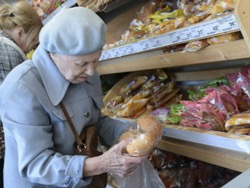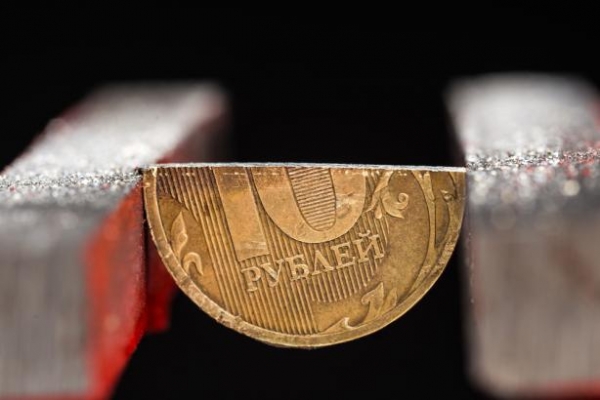
The world Bank notes that the recession has led to increased poverty, which in turn, inhibits the recovery of the economy
The recession negates the significant achievements of Russia in the field of poverty reduction and reduced income, in turn, inhibits the recovery of economic growth. These findings are contained in the report of the world Bank (WB) “the Long road to economic recovery”, which was presented on Wednesday.
The specialists of the world Bank noted that in 2015 the poverty rate in Russia increased from 11.2% to 13.4%, while the number of poor people has increased by 3.1 million, reaching a total of 19.2 million people. High inflation also reduced real wages by 9.5% in 2015, while other sources of income that are not associated with salary, such as pensions and other transfers that have been indexed by the value below General inflation.
However, it is noted in the WB report, due to the reduction in real wages the impact of the recession on the labour market was less painful, while the unemployment rate rose only slightly from a record low of 5.3% in 2014 to 5.6 per cent in 2015.
Especially influenced the process of reducing incomes and increasing poverty levels, indicates WB, the second shock due to deteriorating terms of trade in 2015. It led to a further weakening of the ruble and the negative impact of devaluation on household consumption. “The consequence of this, along with restrictions on food imports, introduced in 2014, was the surge in inflation to double digit levels in the first half of 2015. At the same time on the background of insignificant growth of nominal wages in the private sector and limited the indexation of wages and transfers in the public sector in the first half of 2015, the consumption of households decreased on average by 7.5% for the corresponding period of the previous year”, — stated in the report.
In August 2015 the devaluation of the rouble resumed, and in November-December has increased, according to the report. As a result of the negative impact due to deterioration of conditions of foreign trade, the purchasing power of households continued. “The fall in real income under conditions of consistently high interest rates affected the ability of households to service debt and attract new loans. As a result, during the second half of 2015, the demand of households remained at an extremely low level, thus, according to the estimates, a decrease of 11.4% for the corresponding period of the previous year. Total consumption decreased by 7.5%, while its total contribution to the slowdown in economic growth in 2015 amounted to 5.4 percentage points,” write the experts of the WB. This is more than twice the negative contribution observed during the global financial crisis.
WB experts predict that poverty will continue to increase in all scenarios, the base or pessimistic. This is due to the ongoing moderate rise in unemployment and a slight increase in revenues because the consolidation plan of the budget does not allow the government to increase spending on poverty reduction. In the baseline scenario the number of poor people in 2016 will increase by 1.1 million people, and the level of poverty will rise to 14.2%. “This increase will nullify the progress made over the last ten years, and will be the most significant increase for the period after the economic crisis of 1998-1999. As the projected growth of the economy expected to stabilize the level of poverty,” the report notes.
The world Bank notes that the negative factors contributing to the onset of the recession in Russia, showing some signs of weakness. However, according to the current reference scenario of the world Bank, in 2016 is expected to again further reduce the Russian economy by 1.9%.
The WB forecast is different from what to expect of the Russian monetary authorities. So, in the updated report on monetary policy the Central Bank’s baseline scenario for 2016 envisages a fall in GDP of 1.3–1.5%. That is the scenario now guided the Bank of Russia, waiting for its implementation. Risky scenario, however, envisages a reduction in the economy this year by 2-3%.
The Minister of economic development Alexei Ulyukayev believes that this year will end the recession and the economy will be on the growth trajectory. At a recent meeting with representatives “Business Russia”, he noted that over the last nine months the Russian economy is “in a state of indecision”. Monthly dynamics of GDP with seasonality varies from minus 0.1% to plus 0.1 percent.
Director of research and Analytics PSB Nikolay kascheyev agree that the importance of domestic demand for development is high. According to him, in terms of sanctions and the fall in external demand internal consumption comes to the fore.
Chief economist at the National rating Agency Maxim Vasin believes that, of course, falling incomes leads to a fall in retail sales, decline in other industries (e.g. construction), which largely depend on the demand of the population. However, he did not consider this factor is dominant. In his opinion, much more important than the structural distortions of the economy and the decline of investment.








